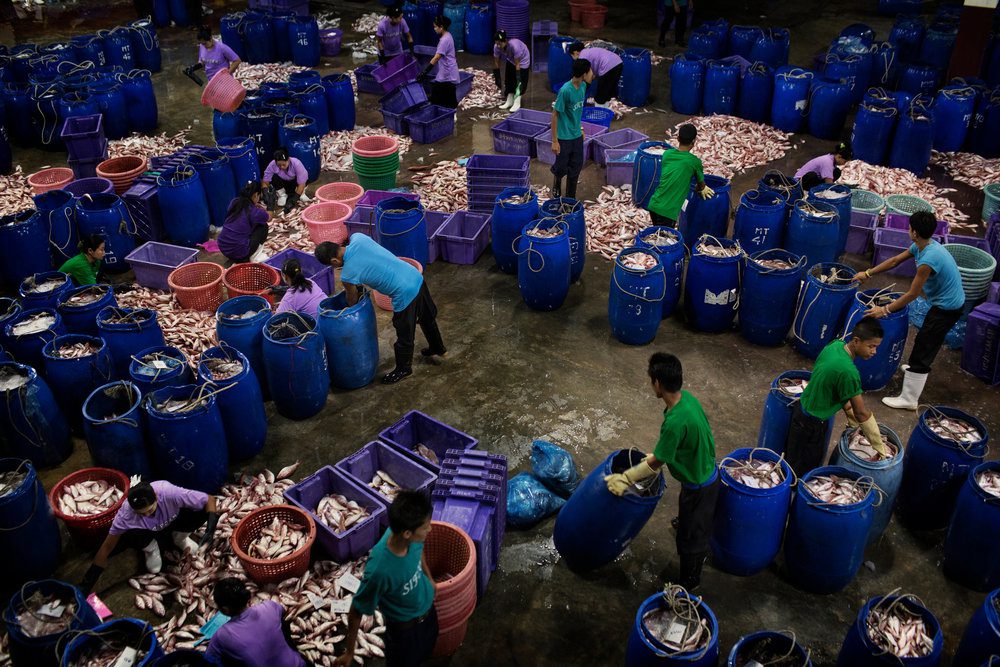Eliminating Trafficking & Forced Labor from Supply Chains: New Legislative Trends

The existence of forced labor and human trafficking in a company’s supply chain represents the newest frontier of the global effort to eliminate forced labor and human trafficking. Supply chains are systems of organizations, people, activities, information, and resources involved in moving a product or service from supplier to customer. They transform natural resources, raw materials, and components into a finished product that is delivered to the end customer.
Forced labor in supply chains is inextricably linked to global commerce. Approximately 90% (18.7 million) of the 20.9 million global forced laborers that have been identified by the ILO are exploited in the private economy, by individuals or enterprises. Increasingly, companies whose supply chains are found to have produced, sourced, and sold products that utilize forced labor are facing international pressure to clean up their supply chains, such as the recent Costco lawsuit alleging slavery in shrimp product supply chains. While companies are starting to engage on this issue, three governments have taken the lead with legislation: Brazil, the United Kingdom and the United States.
Brazil
As previously reported in Human Trafficking Search, the Brazilian government initiated a lista suja or “dirty list” in 2004. The dirty list is a register of employers caught exploiting workers under abusive and coercive conditions. Between 2004 and 2014 300 companies were included on the list. While the dirty list has been hailed as a leading government regulatory tool, the list has undergone many constitutional challenges. In December 2014, the Brazilian Supreme Court granted an injunction suspending the publication of the dirty list. After a three-month suspension, a new dirty list was promulgated in March 2015. The new dirty list was slated to be released in April but has not been issued. While there is concern about the future of the dirty list to regulate slavery and forced labor in Brazil, the dirty list provided an international model for governments on supply chain transparency issues.
United Kingdom
The Modern Slavery Act was passed in March 2015 and the supply chain section, section 54, will likely come into force around October 2015. Section 54 will apply to all commercial organizations which operate business or have business within the UK. Section 54 requires large businesses report annually on their efforts to ensure the business and its supply chains are free of slavery and human trafficking. While the supply chain section of the Modern Slavery Act has yet to come into effect, it marks the first effort by a European country to address supply chain transparency related to human trafficking and makes the UK a regional and global leader on the issue.
United States
In 2010, California passed the California Transparency in Supply Chains Act (CTSCA). The CTSCA requires retail or manufacture companies with annual gross receipts of $100 million to disclose their efforts to eradicate forced labor in direct supply chains. The CTSCA represents a positive state level model to address supply chain transparency and combat forced labor.
Recently, the U.S. Congress has witnessed renewed federal legislative efforts to eliminate modern slavery, human trafficking, forced and child labor through supply chain disclosures. In July 2015, H.R. 3226 Business Supply Chain Transparency on Trafficking and Slavery Act of 2015 was introduced in the House of Representatives. H.R. 3226 requires companies with annual worldwide global receipts greater than $ 100 million to report to the Securities Exchange Commission information describing any measures taken to identify and address conditions of forced labor, slavery, human trafficking and child labor within supply chains. A Senate companion bill to HR 3226, S. 1968, was introduced in August. The increased congressional interest in supply chain transparency legislation illustrates a hopeful forward path.
Ashley Feasley is the Director of Advocacy at the Catholic Legal Immigration Network, CLINIC.
(Photo Credit – Adam Dean for the New York Times)
